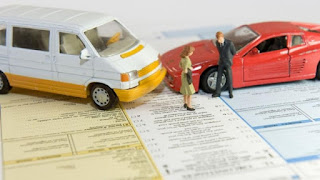It is sometimes difficult to understand an auto insurance quote. Especially if one wants to make comparisons. Comprehensive insurance she really covers all the risks? What is the guarantee of accessories?
Legal nature of the guarantees
The first guarantee, and the only required on a contract, is the guarantee liability of the driver. It covers the damage and injury caused to others. By definition, it therefore protects neither the driver nor the insured vehicle. It is also known insurance "third party". This is a common basic guarantee to all contracts.
It is possible to add to this guarantee legal protections. The guarantee "legal defense" supports, for example, the defense of an insured sued. The recourse guarantee, meanwhile, allows the insured to sue in court when injured by a third party on the occasion of an accident.
Guarantees vehicle damage
These guarantees are the difference between third-party insurance and insurance "all risks". They cover indeed damage to the vehicle in case of fault accident, or when the charge can not be identified. They provide include:
- The destruction or disappearance of the vehicle (guarantees theft / fire, usually coupled)
- Damage due to collision (Collision Damage)
- Various impairments (all risk damage, broken windows).
In addition to these guarantees those relating to natural or technological disasters, storms ....
Options also ensure vehicle accessories and the goods it contains (luggage, electronics ...) or mechanical failures that are no longer covered by warranty.
Namely: these guarantees are subject to deductibles, variable amount depending on the contract.
Personal driver insurance
Neither the civil liability or damage of warranties cover the consequences of an accident on the driver himself. These consequences can be death, disability, physical or psychological effects ... They are guaranteed by the personal insurance of the driver. This insurance can take two forms:
- The individual guarantee circulation, which provides an amount of fixed compensation, that is to say known since the subscription of the contract (for example, a death benefit of $100,000)
- Guarantee insurance body of the driver. The compensation is calculated on a case by case depending on the severity of the injury, the economic situation of the insured, etc.
The assistance
Insurance contracts may also include assistance services. The goal then is to repair the consequences of a disaster, but to bring aid to the insured immediately after the accident. She has three complementary forms:
- Assistance in connection with the immobilization of the vehicle. It can support, according to the contracts, towing, transportation and accommodation of the driver and passengers, the loan of a vehicle during repairs ...
- Medical assistance in case of accidents: sending an ambulance, care medical repatriation abroad ...
- Support the death: organizing the transport of the body, funeral support, psychological and legal assistance ...

